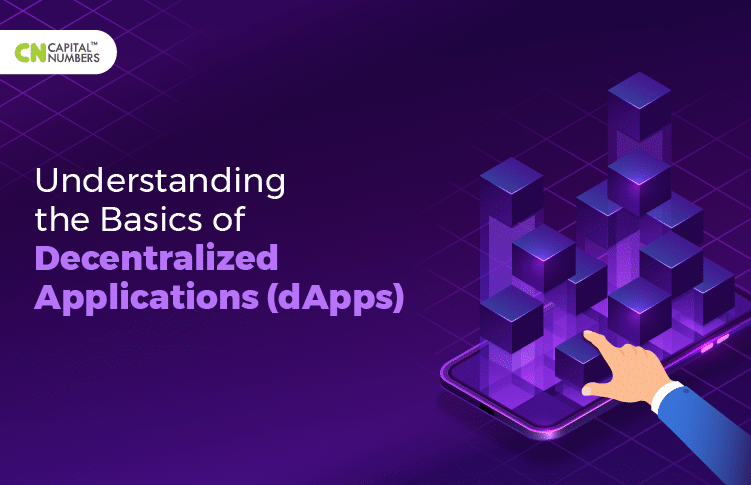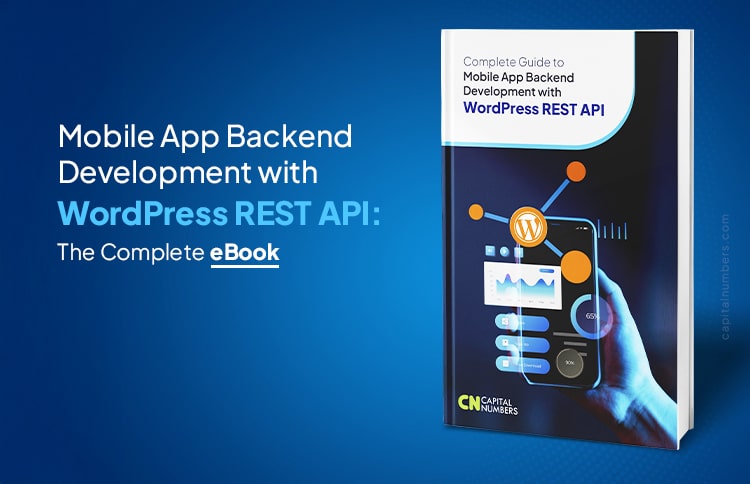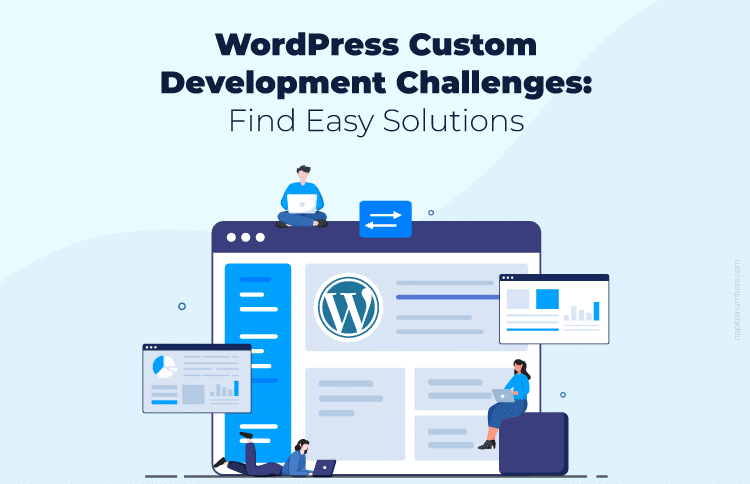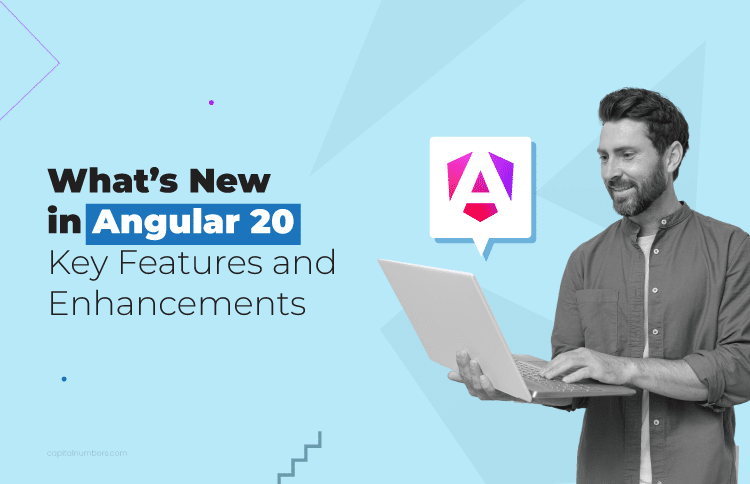Everything You Need to Know about Decentralized Applications (dApps)
Table of Contents
Blockchain technology has been gaining popularity in recent years and is revolutionizing how we think about digital systems. dApps are a core part of this new wave of technology, providing an alternative to traditional software apps.
Decentralized Applications, or dApps, consists of back-end code that runs on a P2P decentralized network. These apps offer similar kinds of features like that to traditional consumer apps. But they use blockchain technology to give consumers greater power over their data by removing the need for centralized data management, thus, rendering the service “decentralized.”
Let’s explore dApps in detail –
dApp Architecture
Decentralized applications have a unique architecture that differs from traditional centralized apps. Here are the key components of a decentralized application:
1. Ethereum Blockchain
Ethereum is a decentralized and open-source blockchain platform that establishes a peer-to-peer network to execute securely and verify app code, known as smart contracts. Decentralized apps have their back-end code (smart contracts) running on a decentralized network, not a centralized server. dApps use the Ethereum blockchain for data storage.
2. Smart Contracts
dApps use smart contracts to define the state changes happening on the blockchain. It is a collection of code and data that resides at a specific address on the Ethereum Blockchain and runs on it. They are written in high-level languages, including Solidity and Vyper.
3. Ethereum Virtual Machine(EVM)
The global virtual computer executes the logic defined in the smart contracts and processes the state changes happening on the Ethereum network.
4. Front-end
The front-end is the part the dApp users can see and interact with, including the graphical user interface(GUI). However, the front-end also communicates with the app logic defined in smart contracts.
Benefits of dApps
Decentralized Applications (dApps) offer several benefits, including –
I. Decentralization
dApps are not controlled by any central authority, which makes them decentralized. So, there is no central point of failure, and the dApp can continue to function even if one or more nodes fail.
II. Transparency
Since dApps are built on a blockchain, all transactions are transparent and publicly visible. This makes it difficult for any single party to manipulate the system without being detected.
III. Security
dApps are inherently secure for their decentralized nature. They are resistant to hacking and other types of cyber-attacks because the data is stored across multiple nodes in the network, making it virtually impossible for any single node to compromise the entire system.
IV. Reduced Costs
dApps can reduce transaction costs significantly by eliminating the need for intermediaries, including banks, lawyers, and other third-party service providers. It leads to faster and cheaper transactions for users.
V. Increased Efficiency
dApps can execute transactions faster than traditional systems because they do not require time-consuming verification processes from intermediaries. It enhances efficiency and productivity for businesses.
VI. Community Governance
dApps are often governed by a community of stakeholders vested in the app’s success. It leads to better decision-making and equitable distribution of rewards.
Use Cases of dApps
dApps are still in their infancy. Currently, you can’t find them in Google Play Store. But over 3000 dApps are built on Ethereum, the leading Blockchain-based dApps platform. There are dApps are every category, including finance, productivity, gaming, etc.
Two of the well-known uses of dApps are Compound Finance and Ethlance.
- Compound Finance is the leading dApp of 2019. They’ve created a suite of apps to enable cryptocurrency borrowing and lending. For instance, if you hold cryptocurrency, you can lend your coins to earn interest. At publication, you can gain 11% interest/year on lending DAI and nearly 8% lending USDC. Also, you can borrow from Compound Finance without needing KYC and complicated paperwork.
- Ethlance is like Upwork, a great marketplace for jobs. But unlike Upwork, which is known for its expensive fees, Ethlance is decentralized. You can register free of cost. Besides, you can post jobs and hire people without giving any fee. Ethlance can run sustainably with 0% fees from contractors or employers, making it an excellent alternative to Upwork or other leading marketplace platforms.
Other popular uses include –
- Supply Chain: Decentralized supply chain applications can provide end-to-end traceability of products, ensuring transparency and reducing the risk of fraud.
- Identity: Decentralized identity applications can control users’ data and eliminate the need for centralized identity providers.
- Gaming: Decentralized gaming applications can give users ownership of in-game assets and enable peer-to-peer trading without intermediaries.
- Healthcare: dApps can store and track healthcare records and facilitate healthcare professionals’ communication and collaboration.
Differences between Centralized and Decentralized Apps
Here are the chief differences between centralized and decentralized apps –
| Feature | Centralized App | Decentralized App |
| Control | Controlled by a single organization or authority | Controlled by a network of users. |
| Trust | Users must trust the central authority to maintain data integrity and security | Trust is distributed among all users in the network |
| Data Storage | Data is stored on a centralized server or data center | Data is distributed across the network |
| Performance | Can handle large volumes of data and users, but may experience downtime | Can be slower and less scalable, but more resistant to downtime |
| Accessibility | Users must have access to the central server to access the app | Accessible from anywhere with an internet connection |
| Governance | Governance is centralized and controlled by the app owner, or operator | Governance is distributed and controlled by the network of users |
| Innovation | Changes or updates require permission from the central authority | Changes can be made quickly and easily by anyone on the network |
| Security | Single point of failure increases the risk of security breaches | Distributed nature of the network can make it more secure |
| Transparency | Transparency is limited, as users must trust the central authority to act in their best interest | Transparency is high, as all transactions are recorded on the public blockchain |
| Examples | Facebook, Google, Uber | Bitcoin, Ethereum, IPFS |
What is the Future of dApps?
Decentralized apps can disrupt various industries and fundamentally change how we interact with technology. They can give users better control over their data and eliminate the need for intermediaries in multiple industries.
A GitHub report dedicated to dApps concluded that these applications boast “the potential to become self-sustaining”, as stakeholders are empowered and involved in their development. So, they won’t ever require a single decision-making authority. The report noted, “It is conceivable that dApps for payments, data storage, bandwidth, and cloud computing may one day surpass the valuation of multinational corporations, like Visa, Dropbox, Comcast, and Amazon, currently active in the space.” DApps might prove a great alternative to traditional social media platforms by genuinely protecting free speech.
But potential challenges also need to be addressed, including scalability and interoperability between different blockchain networks. Nevertheless, decentralized apps are an exciting development in technology and finance. And we can expect to see more innovation and growth in this space shortly.
Also Read: Blockchain Wallets: A Secret to Secure Digital Assets
Bottom Line
The landscape of dApps is evolving rapidly, making Ethereum the platform of choice for Blockchain developers. Its potential indicates that we can expect to see exciting new functionalities and use cases for blockchain technology shortly.
If you also want to take advantage of this emerging technology, look no further than Capital Numbers, an award-winning software solutions company offering cutting-edge digital solutions effectively. With us, you can hire dApp developers and build an app of your choice. Want to discuss your project? Book a call today!















